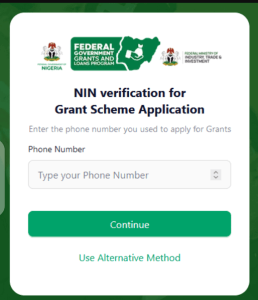ARTICLES
Top 5 Mistakes To Avoid When Applying for Government-Backed Loans in Nigeria
Top 5 Mistakes To Avoid When Applying for Government-Backed Loans in Nigeria

Government-backed loans are a lifeline for many Nigerians seeking funding for businesses, education, or other pressing financial needs. These loans often come with favorable terms, such as low interest rates and flexible repayment schedules, making them an attractive option. However, securing one can be a challenge if you don’t approach the process with the right strategy. To increase your chances of approval and avoid unnecessary delays, it’s important to sidestep common mistakes many applicants make.
Below are five mistakes you should avoid when applying for government-backed loans in Nigeria:
1. Failing to Research the Loan Requirements
One of the most common pitfalls is neglecting to familiarize yourself with the specific requirements of the loan program. Every loan scheme comes with its own eligibility criteria, application process, and supporting documentation. Some are targeted at small businesses, while others are tailored for specific industries, such as agriculture or technology.
What to Do Instead:
Before starting your application, thoroughly review the requirements for the loan you’re interested in. Check for details like:
- Who is eligible to apply.
- The types of businesses or individuals the loan is meant for.
- Documentation needed to support your application.
Most government-backed loan programs have official websites or published guidelines. Take the time to read them and, if possible, attend information sessions or workshops related to the loan.
ALSO READ: Best Microfinance Banks for Business Loans in Nigeria
2. Submitting Incomplete or Incorrect Documentation
Incomplete or inaccurate documentation is another mistake that can derail your loan application. Missing information or providing false details can lead to outright rejection or delays in processing. For example, business loan applications typically require business plans, tax clearance certificates, and financial statements, among others. Submitting outdated or incomplete versions of these documents can create problems.
What to Do Instead:
- Create a checklist of all required documents and verify that each one is accurate and up-to-date before submitting.
- If you’re unsure about any specific requirement, reach out to the loan provider for clarification.
- Avoid submitting false or misleading information, as it could have legal consequences.
Accuracy and completeness are essential for demonstrating your credibility as an applicant.
ALSO READ: How to Get Life Insurance with Mental Health Conditions
3. Not Having a Clear Purpose for the Loan
Lenders need to see that you have a well-defined purpose for the funds you’re requesting. Applying for a loan without articulating how the money will be used weakens your application and may result in rejection. For example, stating vague goals like “business expansion” without outlining specific plans will not inspire confidence in the decision-makers.
What to Do Instead:
Prepare a detailed proposal or business plan that clearly explains how you intend to use the loan. Include specifics such as:
- The amount of money required.
- A breakdown of how the funds will be allocated.
- Expected outcomes, such as increased revenue, job creation, or market expansion.
For personal loans, be equally specific—whether it’s for tuition fees, medical expenses, or home improvement. A clear purpose shows that you’ve thought through your needs and will use the funds responsibly.
ALSO READ: How to Apply for Government Business Loans in Nigeria
4. Ignoring Your Creditworthiness
Even though government-backed loans often have less stringent credit requirements than private loans, your credit history still matters. Lenders use it to evaluate your financial habits and your ability to repay the loan. If you have unpaid debts, frequent defaults, or other negative marks on your record, it can affect your application.
What to Do Instead:
- Before applying, check your credit report to ensure it’s accurate and up-to-date.
- Address any outstanding debts or discrepancies in your report.
- Build a positive credit history by paying off smaller loans or debts before applying for a larger one.
A clean financial record demonstrates that you’re reliable and capable of managing loans effectively.
5. Underestimating the Importance of a Strong Business Plan (For Business Loans)
For entrepreneurs seeking business loans, the absence of a solid business plan is a common reason for rejection. A poorly written or generic business plan gives the impression that you’re not fully committed to or informed about your business.
What to Do Instead:
Take the time to develop a comprehensive business plan that addresses all aspects of your venture, including:
- Business description and objectives.
- Market analysis and target audience.
- Revenue projections and financial management plans.
- Strategies for growth and sustainability.
Your business plan should reflect thorough research and a realistic assessment of your business’s prospects. Seek professional assistance if necessary to ensure the plan is both compelling and practical.
ALSO READ: After a National Diploma (ND) in Polytechnic, What Next? (A must-read for ND holders)
Bonus Tips to Improve Your Application
While avoiding the mistakes above is essential, there are additional steps you can take to strengthen your loan application:
1. Seek Professional Advice
Consult financial advisors, accountants, or business consultants who are familiar with government-backed loans. They can guide you through the process and help you address any weaknesses in your application.
2. Attend Training Sessions or Seminars
Many government agencies and financial institutions offer training programs to educate applicants on how to prepare successful loan applications. Participating in these sessions can give you valuable insights and improve your chances of approval.
3. Be Patient and Persistent
Government-backed loans often have a longer processing time due to high demand. Follow up on your application regularly, but remain patient throughout the process.
4. Maintain Transparency
Always provide accurate and honest information about your financial situation, business operations, and intentions for the loan. Transparency builds trust and credibility.
ALSO READ; Are You Applying for Admission this Year? Please this Important Information is for You
Discover more from 9jaPolyTv
Subscribe to get the latest posts sent to your email.






















